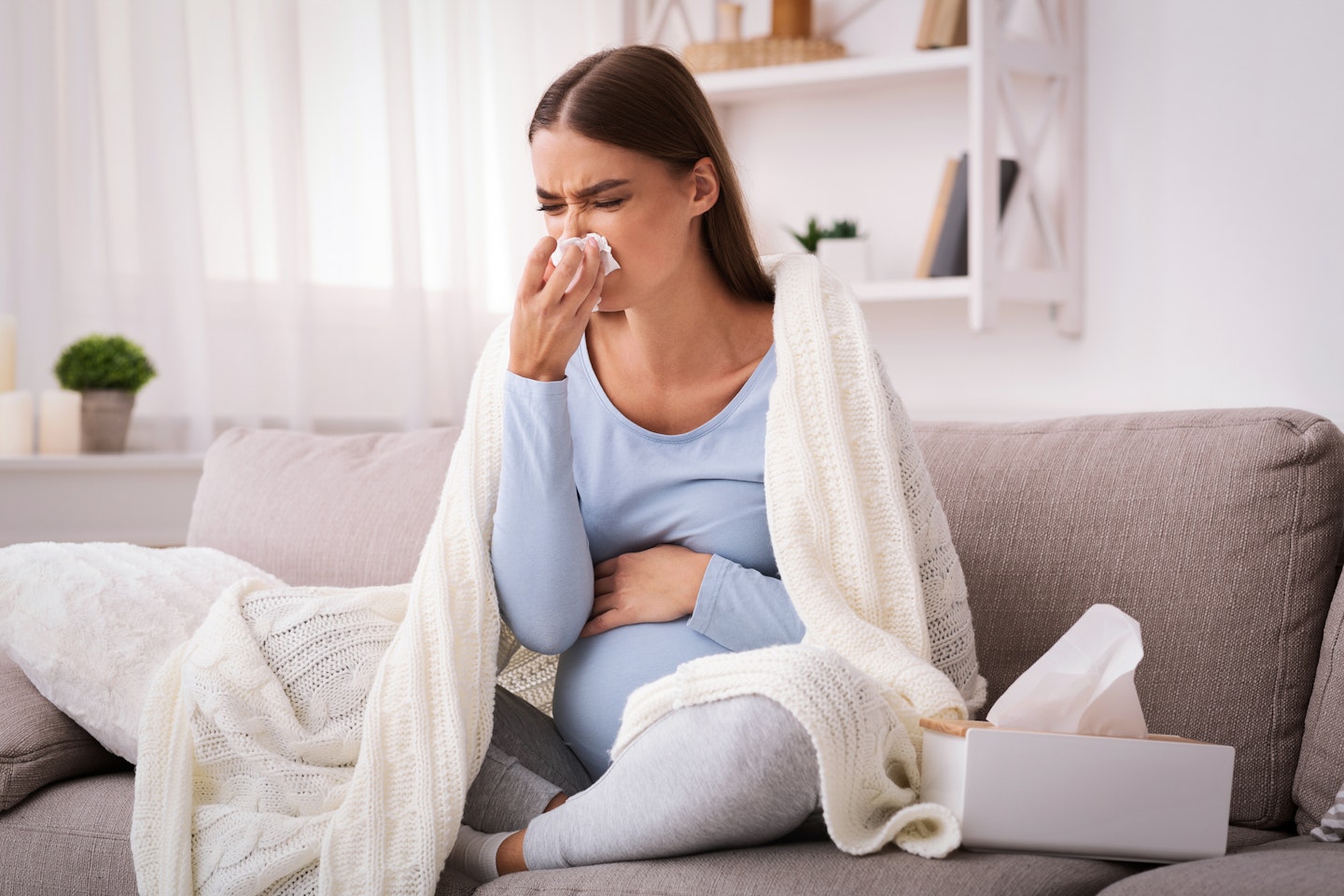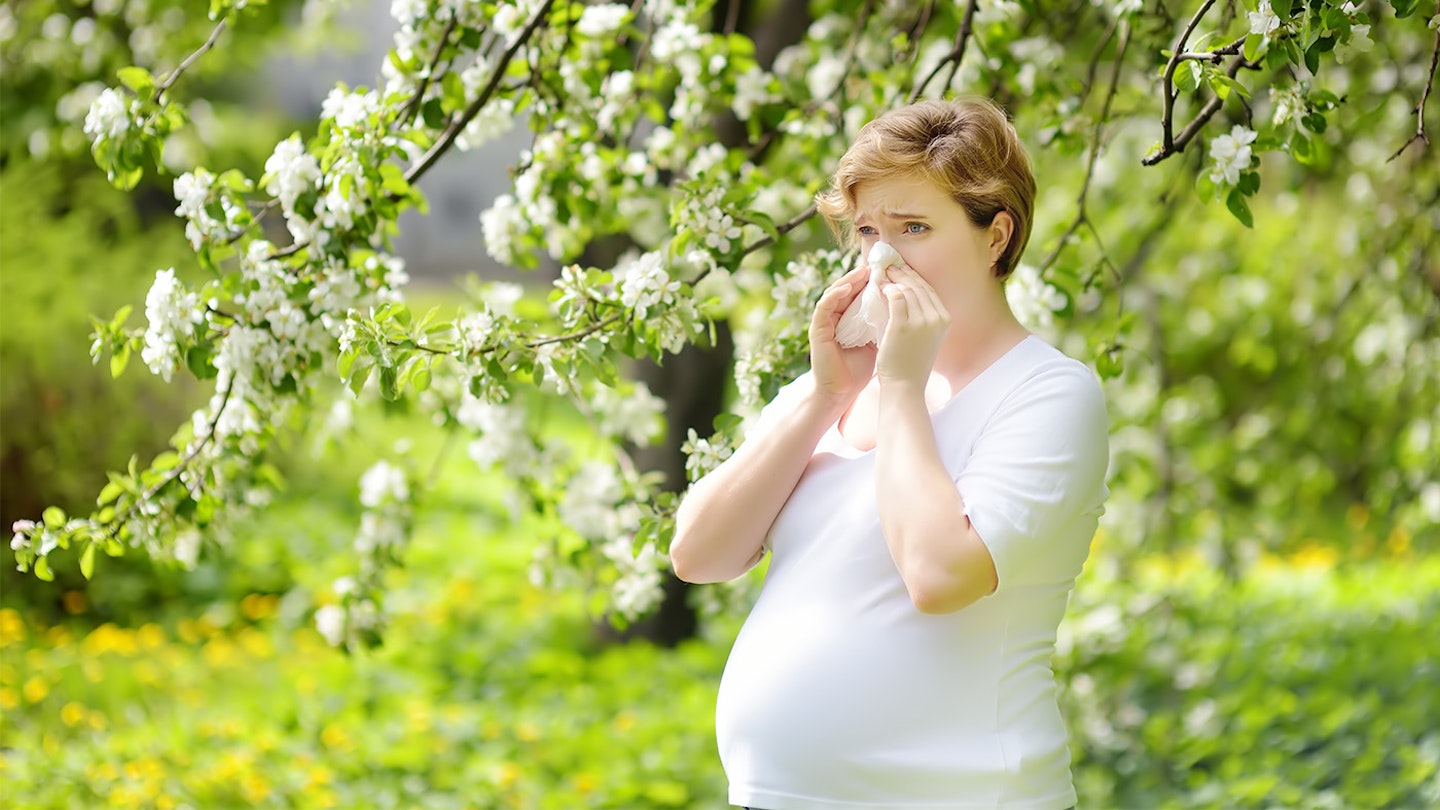Hay fevercan be aggravating at the best of times, but especially when you’re pregnant and you’re not sure which of your go-to medicines you can use. But there are ways to manage hay fever in pregnancy and give yourself relief without harming your baby
Here's everything you need to know about what medications are safe to take and how you can cope with your hay fever during your pregnancy, while making sure your baby is kept safe.
What is hay fever?
Hay feveris very common in the UK and affects around one in five adults.
"It’s a “rhinitis” – a condition where something makes the inside of your nose inflamed," says Dr Ellie Cannon, author of Keep Calm: The New Mum's Manual. "It can be caused by various different allergens, such as pollen, animal fur and dust."
In addition to causing sneezing, itching and a runny nose, hay fever may also have an effect on your eyes, sinuses and throat, making them itchy and sometimes causing a cough. You may also experience ear ache, a headache or feeling tired and drowsy.
Are hay fever symptoms different during pregnancy?
During pregnancy, hormone changes can increase the chances of you feeling bunged up and full of cold, which naturally can get worse during hay fever season.
"Pregnancy has an effect on your immune system and hay fever is a condition caused by the immune system," Dr Ellie explains. "But it’s hard to tell if it’s worse or just feels worse during pregnancy as you can’t take your usual medication."
Hay fever is very common in the UK and affects around one in five adults.
Is hay fever medication safe to take during pregnancy?
While you may not be able to take your usual medicine, Dr Ellie says there are some alternatives you can try instead.
"Steroid nasal sprays such as Beconase or flixonase can be used," she says, as only a tiny amount goes into your blood stream, which passes on to your baby.
"It’s best to avoid anti-histamines unless they have been prescribed by your GP," Dr Ellie advises. "You can also use saline nasal sprays, such as sterimar, to wash out the pollen and deterrants like haymax which keep pollen away from the nose." Both of these can be bought over the counter and won’t harm your baby.
Are there any other remedies?

Want to steer clear of medication altogether? There are some changes you can make yourself to help shield you from hay fever in pregnancy. Dr. Edel Duffy, Head of Medical for FUSION™ Allergy Nasal Spray, shares her top tips below:
1. Get a good night's sleep
This can feel hard enough when you're pregnant, so it’s a good idea to have a bedtime routine that helps to reduce the likelihood that allergens, like pollen, will affect you getting a good night’s rest.
• Leaving the clothes that you’ve worn during the day outside of the bedroom is a good way to help minimise the amount of pollen you bring into your room before bed.
• Washing or simply wetting your hair before bed will help to stop pollen and other allergens rubbing off onto your pillow. Pollen can even attach itself to your eyelashes, so bathing your eyes will reduce the chances of any flare ups during the night and help you to have a restful sleep.
2. Try and keep your home a pollen-free zone
Avoid bringing pollen into your house by taking your shoes off at the door. If you have a cat or dog, limit the amount of pollen they bring into the house by combing their fur before they come in – or better still, get someone else to do it for you if you can!
3. Plan ahead
If you're planning to head outside for the day it’s worth checking daily pollen counts so you’re prepared, as the amount of pollen in the air tends to spike during the morning. Plan your day so that you spend time outdoors in the afternoon or early evening instead when pollen counts are usually at their lowest.
Also, take hay fever products out with you to help to manage symptoms whilst you’re out and about. Fusion Allergy Nasal Spray (Boots £9.99) is safe to use during pregnancy, and contains the natural ingredient Ectoin, which forms a moisturising protective “shield” for the eyes, nose, mouth and throat, blocking out pollen and relieving symptoms such as sneezing and nasal congestion.
Always check with your GP before taking any medication when you’re pregnant, or speak with your pharmacist about natural hay fever products that are suitable for pregnant women.
